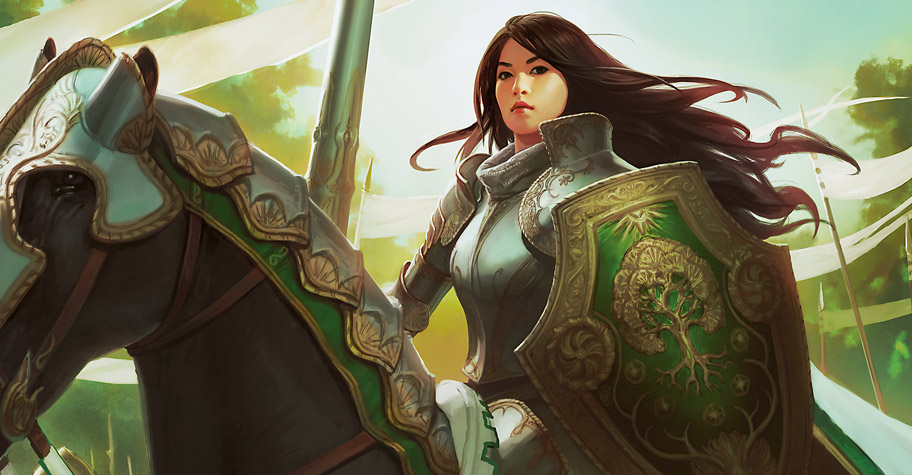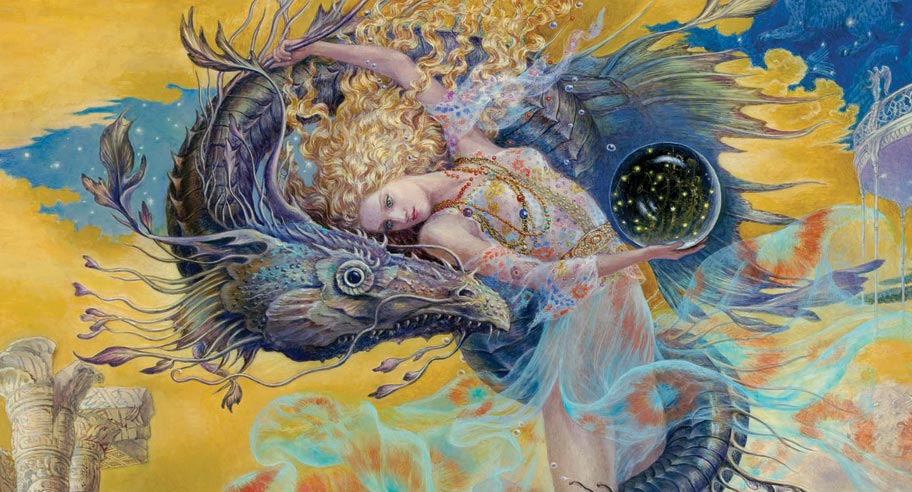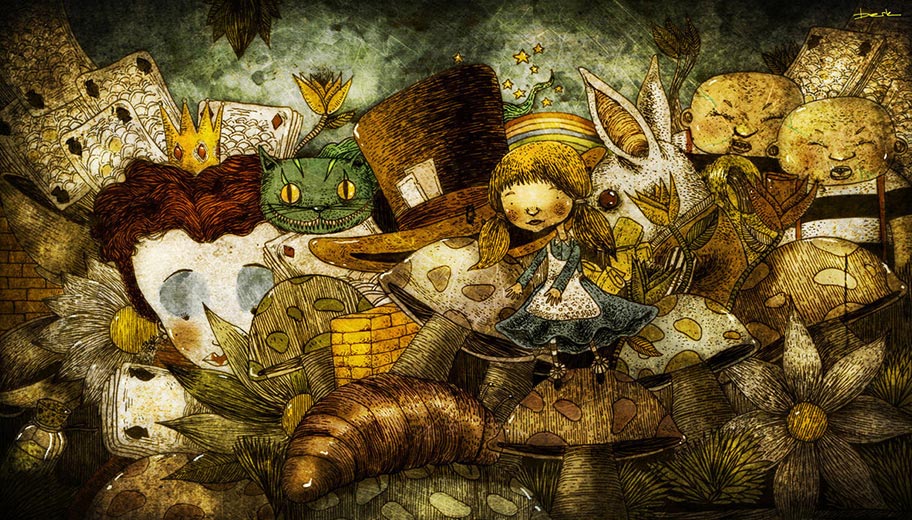It got me to wondering why there aren’t more fantasy (or science fiction) novels that deal with issues outside of violence?
I’m working on an idea for a secondary world urban fantasy about a young man who enters a very opulent city looking to become a master chef. The story follows his journey through various culinary-related careers — farmer, butcher, fisherman, baker, patissier, commis — until he opens his own restaurant and becomes a known quantity within the city. Although it doesn’t even sound like it would need to be set in a fantasy city, I’m still making it a fantasy because I’m comfortable with fantasy and I also want to explore the magic in food. Outside of writing and reading, cooking is a passion of mine.
However, as I’ve been outlining and drafting this novel (working title: Stock), it occurred to me that I was writing a fantasy novel with almost no violence (outside of a fistfight or two). The plot is resolved through hard work and cleverness. It got me to wondering why there aren’t more fantasy (or science fiction) novels that deal with issues outside of violence? Read More »
Even if you put aside problematic assumptions of biological determinism, there’s still one thing I just can’t understand: why on earth would a fantasy world have to conform to the (supposed) rules of this one?
Lately there have been questions as to whether epic fantasy is inherently “conservative.” The term is sometimes specified in terms of political movement or ideological conservatism, but more broadly refers to the production and reproduction of social convention. I have serious doubts about the ideological bit, a point already well articulated by Liz Bourke. Unfortunately, I have little doubt about the rest—particularly in comparison to epic fantasy’s sibling genre, science fiction. But why is that, and does it really have to be that way?
I started thinking about these questions after reading excellent essays by Kameron Hurley and Foz Meadows on the historical precedent for women warriors in epic fantasy (as well as Django Wexler’s epic follow-up piece), and particularly after being drawn into a vigorous online discussion on that topic. The prevalent counter-argument, as I understand it, is this: for biological-evolutionary reasons (lesser upper body strength, necessity for the slow human reproductive process, greater empathy, etc.), women in our world are less likely to be soldiers; therefore, they should be less common as soldiers in fantasy worlds.
Huh? Read More »
I’m going to tell you a story about llamas. It will be like every other story you’ve ever heard about llamas: how they are covered in fine scales; how they eat their young if not raised properly; and how, at the end of their lives, they hurl themselves – lemming-like- over cliffs to drown in the surging sea. They are, at heart, sea creatures, birthed from the sea, married to it like the fishing people who make their livelihood there.
Every story you hear about llamas is the same. You see it in books: the poor doomed baby llama getting chomped up by its intemperate parent. On television: the massive tide of scaly llamas falling in a great, majestic herd into the sea below. In the movies: bad-ass llamas smoking cigars and painting their scales in jungle camouflage.
Because you’ve seen this story so many times, because you already know the nature and history of llamas, it sometimes shocks you, of course, to see a llama outside of these media spaces. The llamas you see don’t have scales. So you doubt what you see, and you joke with your friends about “those scaly llamas” and they laugh and say, “Yes, llamas sure are scaly!” and you forget your actual experience. Read More »
The idea behind my recent series, the Aetherial Tales, is simple: I wanted to write my own version of the “other-race living among us” trope, but in my own individual way. Although each novel can be read as a stand-alone, the most recent volume, Grail of the Summer Stars, completes a bigger story arc that was simmering in the background of Elfland and Midsummer Night. And that set me thinking about the themes – conscious or otherwise – that keep cropping up in an author’s work.
For years I had this idea in my head that every new book I wrote had to be completely different from the last, different from anything else that’s ever been written! Sigh. It took a while, but eventually I accepted that this is impossible. Well – at least incredibly rare and not always desirable. (Readers often want “more of the same”, and why not?) Virtually everything that can be written about already has been, and will be again, over and over. And that’s fine: many themes are universal because we can all relate to them. Love, birth, death, survival, finding the place we truly belong, war, crime and justice, the hero’s journey, and so on, are timeless and resonant. They don’t have to become clichés, as long as the author can bring an individual voice, pull something fresh from a well of compassion, wit or wisdom that engages the reader. Read More »
When it comes to discussing the appeal of SFF and its various affiliated subgenres, escapism is an extremely relevant consideration. Given how strongly a pro-escapist perspective correlates with a pro-SFF perspective, and vice versa, the term has become a loaded one, such that a species of argumentative shorthand has developed around its usage. Thus: if escapism is a negative, then so too is the desire for escape, casting those who seek or enable it as naïve, childish daydreamers disconnected from reality. If escapism is a positive, then the pursuit of escape is a noble one, allowing us to transcend the limitations of what is in favour of embracing what could be. Though ostensibly a tried and true dichotomy, the term is ultimately inaccurate in this context: the escapist/realist schism is a false binary, not only because the presence of one element doesn’t preclude the presence of the other, but because both escapism and realism are subjectively realised states, not objective truths.
If escapism is a negative, then so too is the desire for escape, casting those who seek or enable it as naïve, childish daydreamers disconnected from reality.
Despite this fact, the fallacy remains a popular one, both at the external level (SFF is less realistic than straight fiction, and therefore less worthy) and the internal level (aspirational fantasy is less realistic than gritty fantasy, and therefore less worthy). Which isn’t to say such conversations are wholly without merit; indeed, a great deal of useful dialogue is spawned by them. It’s just that, at a fundamental level, there’s a tendency to hark back to an either/or that doesn’t exist, but to which we’ve historically ascribed inordinate importance. By definition, all fiction contains elements of escapism and realism, in that it both includes untruths and, being born of reality, is necessarily tethered to it – the only mitigating factor here is the ratio of truth to lies, and given the wildly divergent ends to which fiction can be turned, to say nothing of the myriad possible interpretations of truth, there’s hardly a rule of thumb for determining even that much with any degree of accuracy. The question of whether escapism constitutes a positive or negative force in SFF has nothing to do with its presence, therefore, but rather with the twofold matter what it is we’re escaping from and into. Read More »





